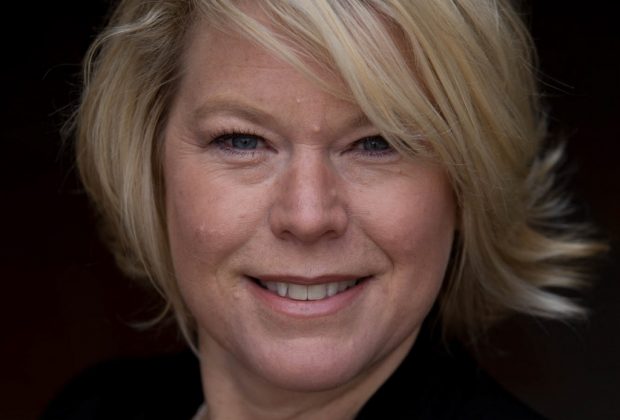1. Judith, you are our first Canadian lawyer featured interview. We have begun the LCA Complimentary Webinar Series for purposes of interacting with and maintaining our educational mission for our Fellows. Its origin, of course, is a result of the COVID-19 pandemic. The U.S. court system has been aggressively adapting to the pandemic, though much of the effort has been experimental among the individual states. How has the pandemic affected Canadian lawyers and courts, and are the implementations utilized still developing?
First, let me say, I am honoured to be the first Canadian lawyer featured interviewee! We have certainly experienced profound change over the last nine months - some of it has been, in a “find the silver lining” kind of way, positive. Like the U.S. court system, the Canadian court system has also been aggressively adapting to the pandemic. In terms of technology and the courts, I think we rocketed out of the 1890s, missed the entire 20th century and have landed right in the middle of the 21st century, in a matter of nine months. We went from a predominantly paper based, in person system, to one that has pivoted online both for court filings and court hearings. It is almost impossible to keep up with the sheer volume of updates we are receiving from our regional and provincial courts. Ultimately, it is a good thing. The province of Ontario is where I focus my practice, although I do also practice in the vast northern Territory of Nunavut. Both are massive places. In Ontario, I have clients in all four corners of the province and everywhere in between. A year ago, it would be normal to have a schedule where I would travel from Windsor (across from Detroit), to Toronto (a four hour drive away) to the nation’s capital, Ottawa (an hour flight north from Toronto,) to Kenora, in the northwestern-most part of the province which is in another time zone (I am serious)! Now with hearings being held virtually, that kind of schedule is more manageable and in fact does make it a lot easier to represent clients from across the province.
So yes, every cloud has its silver lining. I think the rapid transition to virtual hearings and online court filing platforms has been long overdue, and in most situations, welcomed.
2. Though there are differences between the legal systems and trial practices of Canada and the United States, what fundamental similarities hold true among courts and advocates? In what instances are juries available to the parties?
From 2006-2013, I was a governor on the Board of Governors for the American Association for Justice. During that time, I learned just how different, and yet how similar, are the American/Canadian legal systems. Certainly, our rules of practice differ (and they differ from province to province!).
I think one of the most important differences is our approach to juries. In the U.S., the right to have an action tried by a jury is constitutionally enshrined. Not so in Canada. In civil matters, the right to have your matter tried by a jury is not absolute, and not every province has civil juries. In Ontario, either party in a civil case can elect to have the action tried by a jury comprised of six members of the public. Jury selection is very much like a lottery as we do not have voir dire as you do in the U.S. We are given very basic information about our potential jurors – name, age, occupation (which tends to use quite generic terms). We have a very limited opportunity to ask questions. For example, if someone was listed as a “clerk” we could ask whether that person was a clerk for a law firm or insurance company. Each side is only allowed to challenge a maximum of 4 jurors, and those challenges are really only based on what information is provided on the list.
Since the pandemic hit, there is a much more fulsome debate about the continuing role of civil juries. Actions involving juries have seen increased delay due to the need for physical distancing, etc. The discussion that justice delayed is justice denied is surfacing in all civil circles, and we have seen many motions brought to strike juries in order to keep actions moving forward, with divided success. It will be interesting to see how this develops over the winter.
3. In December 2017, in England, you received a Master of Laws degree from the London School of Economics and were inducted at the Honourable Society of the Inner Temple. Please tell us about those experiences and the importance of the Inns of Court in England and/or Canada.
I did receive my Masters of Law from the London School of Economics, but I was not inducted into the Honourable Society of the Inner Temple. In December 2017, we had our inaugural alumni dinner at the Inner Temple. We do not have the Inns of Court in Canada. That said, I love how they are steeped in tradition and history. I do hope to apply to the UK Bar to become a barrister there. I probably would not practice there, but to be admitted to the bar and become part of that great history and tradition would be a real achievement.
4. I was reading about your philosophy of advocacy on your bio at the McKenzie Lake Lawyers LLP website. How has your approach in representing clients evolved since your early years of practice? What advice about practicing in the personal injury arena would you give the younger you?
The constant erosion of tort rights for accident victims has been rather soul-destroying, if I may be blunt. I feel as though I am constantly doling out bad news to people and having to explain that the justice system for them is not fair and not balanced. I believe that my approach has evolved to being more practical and pragmatic. Years ago, I had my motto “Service, Integrity, Results” trademarked. It is critical to manage clients’ expectations, particularly when the system is so unjust. I would definitely advise my younger self to stay strong, but take a lot of breaks and completely unplug from time to time, to rebuild resiliency.
5. At the 2017 LCA Fall Conference & Celebration of Fellows in Bal Harbour, Florida, you were presented with a Peter Perlman Service Award. Share with us please your community service activities and involvement and its importance to you. Also, how do you balance the time demands of your practice with community service?
Community service is critical. I believe it is important to give back to the communities that we serve. It is a honour and privilege to practice law, and with the practice of law comes some very nice perks. It would feel wrong to hoard those benefits. I have been blessed to have been involved in many community initiatives over the years, with one of my most personal projects being the Share the Road Cycling Coalition. This amazing initiative was borne out of the tragic cycling death of my cousin. His widow (a powerhouse of a woman) started the coalition only months after his death, to bring awareness to all road users of the importance of safety and sharing the road. I sat on the board for a number of years and then chaired it from 2013 to 2015. We did a lot of successful lobbying for safer roads and cycling infrastructure throughout the province. While I am no longer active on the board, I remain an active safe cycling/safe roads advocate.
6. How are judges selected, appointed, or elected in Canada?
In Canada, judges are appointed by the Judicial Advisory Committees, which are regionally based and reflect the linguistic and geographic diversity of the area. The committees are often composed of representatives of the federal and provincial governments, the legal profession, the judiciary, and the general public. The committee vets candidates, who are assessed as being “recommended” or “not recommended.” The list of all candidates is then forwarded to the federal Minister of Justice who draws an appointment from the list of names received from the committees and recommends that individual to the federal cabinet. Appointment to the Supreme Court of Canada is a bit different. There are nine judges in total, including the Chief Justice. Candidates must have either been a judge of a superior court or a lawyer for at least 10 years in their province’s bar. Appointments are made by the Governor General of Canada, on the advice of the Prime Minister. Importantly, there is a legal requirement that three judges must be appointed from the Province of Quebec. The other six are appointed from Ontario (3), Western Canada (2), and Atlantic Canada (1). This is done by convention.
7. How do you deal with your personal feelings when working on a case with horrific facts that has questionable or close liability, even from your viewpoint?
I try not to get discouraged. In truth, if the plaintiff is badly injured or disabled as a result of the event that is at issue in the litigation, I always remember what a colleague said “you show me damages; I will show you liability.” I think badly damaged individuals who are sympathetic will go a long way to winning a case with questionable liability. The key is to hook the defendant. I had a case where my client was a backseat passenger in a car that spun out on ice and hit an oncoming school bus that was slowing to a stop to pick up passengers. My colleague said “what did the bus driver do wrong?” I said, jokingly, “he got up that morning.” The fact is, the injuries were so devastating that the bus company ultimately contributed, even though the driver of the vehicle in which my client was a passenger was the main contributor as was the road authority. The bus company still paid.
8. Is your approach at trial to slice and dice the other side with finesse or scorch the Earth beneath their feet? Or is your style adaptable to what the other side dishes out?
Generally, I try to approach the entire trial with finesse. I am not a fan of using scorched earth tactics. I do not think it serves a sympathetic plaintiff (and I only represent plaintiffs). As a mentor said to me many years ago, “It is a long straight road without a curve.” I always took that to mean one needs to stay the course and be true to yourself as a lawyer and a human being.
9. Not that you would know, but how should a trial lawyer handle defeat?
Very kind to say that, but I know about defeat, and the only way to handle it is with grace and poise. Reach across the aisle and congratulate your opponent and his/her client. Go back to the office, give a pep talk to your team (because they have a lot invested in the process as well, both in terms of time and emotion) and thank them profusely for their support. Schedule a “what did we each learn at this trial” session, to be held a couple of weeks later. Then immediately take a few days for some self-care and reflection. A yoga retreat or outdoor recreational vacation will do a world of good and will help steer you away from negative self-defeating thoughts and criticisms. From defeat comes an incredible opportunity to learn and grow. Embrace it.
10. What book should every trial lawyer read?
Bleak House by Charles Dickens
11. How should a lawyer face his or her fears?
It starts by being able to identify and name them. Some fears we can face on our own; some require outside guidance (a life coach or a therapist, or both, as they are not the same thing!).
12. Of all the accomplishments in your career, what do you consider your greatest achievement?
I think my greatest achievement – or greatest honour – is being regularly recognized by my peers as an expert in my chosen area of litigation. Being President of the Ontario Trial Lawyers Association and being inducted as a Fellow into the Litigation Counsel of America are two prime examples of that. I am truly humbled by these recognitions. Those peers also regularly refer clients to me. That level of trust and respect is something I cherish.
13. To what destination do you go to find your own version of solace?
It used to be a spa in Calistoga, but now it is to my beach house on the north shore of Lake Erie. The raw energy of the dynamic lake is always a wonder to me, 365 days a year. I am so grateful to be living there during this pandemic. I do not take it for granted, ever.
14. What is your greatest extravagance?
Travelling to the world’s greatest opera houses to see world class opera… or a really good pair of shoes.
15. If you could meet anyone from history, who would it be, and why?
Queen Elizabeth I. She was a strong female leader who figured out how to endure.
16. Lawyers tend to travel a great deal. What are some of your favorite cities or places and what fascinates you about them?
There are so many places and I have done a lot of travel. In fact, I can proudly say that I had travelled all of the world’s six inhabited continents, alone at some point on each of them, by the time I was 40. I love London and New York City for their vibrancy and the huge array of opera, music, theatre, and art that each city offers. My husband and I adore all things California, especially Napa and Sonoma Valleys. My most haunting trip, however, was the journey I took to Rwanda and Uganda, to see the mountain gorillas and meet with survivors of the genocide. The entire trip was a life altering experience. Last autumn, I travelled for the first time to the far north of Canada and spent 2.5 weeks in the Territory of Nunavut. It is otherworldly.
17. Diversity, along with excellence and integrity, is central to the LCA's mission and plays a fundamental role in our selection of Fellows, growth, and goals. We want to quote you on diversity in the Litigation Commentary & Review. In a word, sentence, or paragraph, what, in your opinion, is the significance or importance of furthering diversity within the profession of law and throughout our system of justice?
The Canadian Centre for Diversity and Inclusion published a report in January 2018 entitled “Diversity by the Numbers: The Legal Profession.” The subtitle of the report is “Unpacking hegemonic masculinity in the culture of private practice.” It is a very interest and important read. To quote the study “…when Racial and Gender diversity is not represented in private practice, it cannot property serve a diverse clientele.” Canada has a very diverse population and that should be represented within the law profession to best serve the public.
18. I once practiced with a fantastic, though legendarily difficult trial lawyer named Olin Zeanah. One of my partners at that firm, beginning when we were associates, kept a list of "Zeanahisms." They were little gems of knowledge that Zeanah would occasionally impart. Did you have a trial icon or mentor in your early years of practice who shared with you the wisdom of years of practice? If so, please tell us about them.
A couple of instances come to mind. In my first year of practice, I was given this case by my principal, the senior counsel of the firm at which I started my career. It was a property dispute, which haunts me to this day. Everything that happened in that case felt deeply personal. My principal took me aside one day and said “I know you are really invested in this personally, but you need to step back and be objective, and pick your battles within the big war; otherwise you will burn out in no time.” He was right. As difficult as it can be, there is a fine line between being a passionate advocate for your client, and being personally emotionally involved in the litigation. The other piece, which I mentioned above, was the advice that the course of our careers is a “long straight line without a curve.” I always reflect on this to stay the course, and see the bigger picture, particularly when I am feeling bogged down in minutiae.
19. What object in your office serves to re-energize you when your mood needs an adjustment?
There are two things: (1) my gallery wall. I have a black & white gallery wall, which is comprised of black & white photography I have either done myself or collected over the years; and (2) Music. My Sonos speaker is permanently set to WQXR, a classical music station out of New York City. It never fails that when I really need a boost, Jeff Spurgeon, the morning show’s host, will play the right piece at the right time. I will always crank up the volume, lean back, close my eyes, and let it wash over me.
20. What is your motto?
In work it is “Service, Integrity, Results” (which I have had trademarked); in life it is “If not me, then who?”






